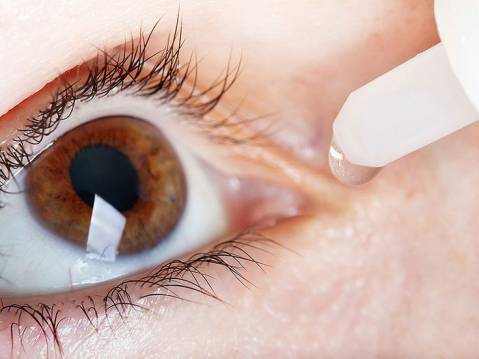Vitamin A, a powerful nutrient known for its myriad of health benefits, plays a crucial role in maintaining optimal eye health. It is proven to be critical in shaping the overall condition of one’s vision. Be it in preventing dry eyes, maintaining night vision, or combating age-related macular degeneration, the benefits of Vitamin A for the eyes cannot be understated.
Prevents Dry Eyes
Vitamin A possesses a significant benefit in preventing dry eyes. Whether obtained from food or supplements, vitamin A plays a vital role in preserving a transparent outer layer of the eye known as the cornea. This helps to keep the eyes moist and lowers the chances of developing dry eye syndrome. Individuals lacking sufficient levels of vitamin A might encounter difficulties in night vision and deal with uncomfortable dry eyes.

Maintains Night Vision
Imagine how disrupting it can be to have impaired vision in low light conditions. Vitamin A helps maintain our eyes’ ability to adjust to darkness and light changes effectively. It aids in the production of rhodopsin, a pigment found in the retinas in the eyes that function optimally in low-light conditions. Thus, a good intake of Vitamin A assures better night vision.
Combats Age-Related Macular Degeneration
Age-Related Macular Degeneration (AMD) is a common eye condition, usually experienced by the elderly. AMD leads to blurred or no vision in the center of the visual field. Studies have shown that antioxidants present in Vitamin A can help reduce the risk of AMD by combating free radicals that can damage the macula – the part of the retina that controls our ability to read, drive, and recognize faces or colors.
| Functions of Vitamin A | Benefits |
|---|---|
| Prevents Dry Eyes | Helps maintain a clear and moist cornea |
| Maintains Night Vision | Aids the production of rhodopsin |
| Combats Age-Related Macular Degeneration | Uses its antioxidant properties to fight AMD |
Overdose
As a fat-soluble vitamin, vitamin A gets stored in the body’s fatty tissues for later use. Hence, the implications of overdosing are different as compared to water-soluble vitamins, which get expelled more easily via urine.
So, if a person consumes too much Vitamin A, either through diet, supplements, or a combination of both, an overdose can occur. This is because the body finds it challenging to get rid of the excess Vitamin A from the system.
Effects on Vision
An overdose of vitamin A can quite ironically turn detrimental for vision.
One condition associated with excessive intake of vitamin A is ‘pseudotumor cerebri’ or false brain tumor, which brings about symptoms similar to a brain tumor, such as blurred or double vision.
In severe cases, a Vitamin A overdose can trigger a sudden onset of vision loss.
Other Overdose Symptoms
Aside from vision problems, Vitamin A overdose can result in a variety of other health problems such as nausea, dizziness, irritability, drowsiness, hair loss, and even, in extreme cases, coma or death.
Table: Overdose Symptoms of Vitamin A
| Symptom | Description |
|---|---|
| Vision Problems | Blurred or double vision, sudden vision loss |
| Nausea | Feeling of discomfort in the stomach |
| Dizziness | A sensation of lightheadedness, faintness, or unsteadiness |
| Irritability | More prone to feeling frustrated or upset |
| Drowsiness | Feeling abnormally sleepy or tired |
| Hair Loss | Thinning or falling out of hair |
| Coma or Death | Resulting from severe cases of Vitamin A overdose |
Prevention and Treatment
The best way to avoid an overdose of vitamin A is prevention. It’s essential to understand the recommended daily intake and not exceed it unless under specific medical advice. If a person suspects they’ve overdosed on vitamin A, prompt medical attention is critical.
Conclusion
It’s clear that Vitamin A is incredibly essential for eye health. It ensures your eyes stay moist, optimizes your night vision, and reduces the risk of age-related eye conditions. To reap these benefits, one should aim to include Vitamin A-rich foods in their diet, like carrots, sweet potatoes, and leafy greens vegetables or resort to supplements after consulting with a medical professional.



